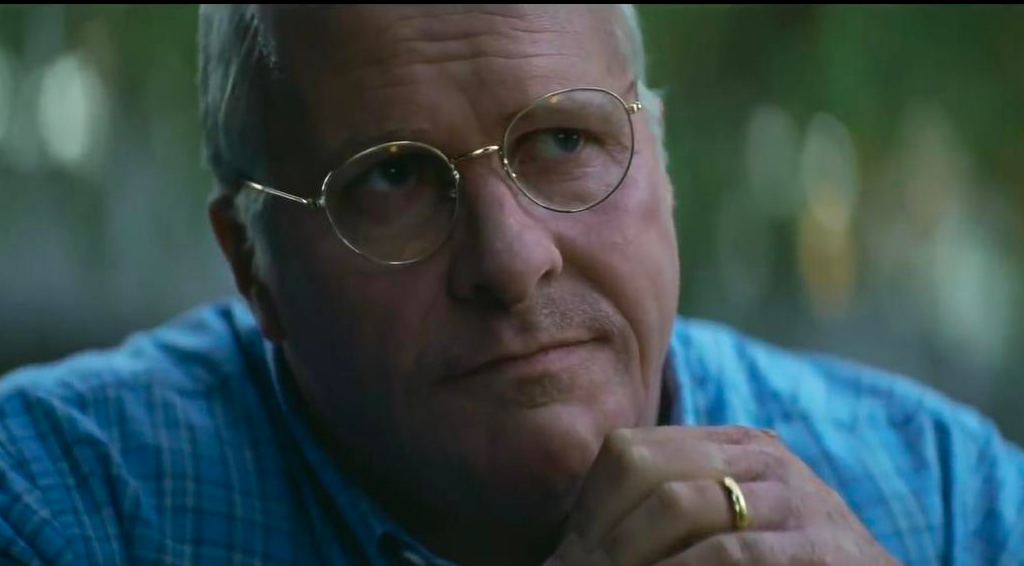VICE
© Annapurna Pictures
Vice is a movie that’s calculated to make people angry. It made me mad too – some of it in the way it was intended; there are ugly reminders of the politics of the time, jolts that made me realize that I grew up in the ’00s, both close to these events and, for the most part, unconcerned with them. I remember a time before 9/11, although I was young enough that my anxieties after the attack were more personal than existential (I had family and friends in the military, and I still do). I remember exactly where I was when I saw the towers fall. I also remember exactly where I was when I saw the news footage of the bombing of Iraq.
Vice made me mad because of the way it presents these events, and its central argument. The movie doesn’t know if it’s a comedy or a tragedy or a drama or a documentary stuffed with re-enactments. It has a very dim view of its audience. It doesn’t know when to spell out information and when to withhold it. Instantly recognizable people like Bush Senior and Donald Rumsfeld are given title cards after conversational cues reveal their identities; others, like Condoleezza Rice, are given a single line, a significant look, and nothing more. Stylistic flourishes are chosen for effect, then Sometimes there are title cards. Sometimes we get voiced-over thoughts, sometimes narration explaining what’s happening on screen. Dick Cheney himself leans past an interviewer to deliver a why-I-did-it monologue straight to the camera. In one pivotal scene, a manipulative conversation is cross-cut with a fly fisherman casting his lure and reeling in a fish. Everything is over-simplified and over-explained, poorly paced and patronizing. We learn that Dick Cheney wanted power and money and oil, but we never got to understand him as a person, what made him tick; it’s an opaque portrait of a polarizing man painted in a way that’s calculated to get people to dig deeper into their hatred (or respect) for him without questioning why he is the way that he is. By the end of the movie, my knees and my head both hurt.
The through line of the film — “we invaded Iraq for its oil reserves, against the better judgment of our intelligence resources” — is presented as both an afterthought and as a grand revelation, as though this was something that slipped past everyone’s attention as it was happening. The guitarist at my family’s church taught me to say “No blood for oil!” when I was a preteen. It was the year we invaded Iraq.
